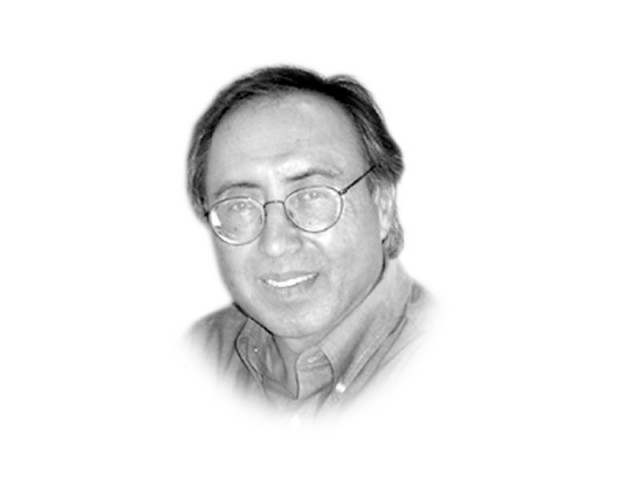Stability in a chaotic world
Arab-Iran rivalry has found battlegrounds at societal levels in many Muslim-majority states, including in Pakistan

The writer is a professor of political science at LUMS
Why is terrorism a regional issue, why do we need to deliberate on its regional solutions, and what can they be? First, we need to look at the dismantling of the states in the region. It began with Afghanistan when it was invaded by the Soviet Union. The West, Pakistan and every other minor or major actor put their forces behind the Mujahideen to conquer the Afghan state. It was reduced to institutional rubble and what has been constructed over it has questionable strength and effectiveness. Disrupting the historical evolution of a state, the lethal forces of the two superpowers of the 20th century tried to provide what they thought were ‘modern’ replacements, but state and nation building in Afghanistan has proved to be a bigger challenge than they thought it would be.
There is also the unravelling of the post-Ottoman Arab states — the so-called revolutionary states that were premised on very modern notions of Arab nationalism, socialism and revivalism. They ended up establishing personalised rule, suffocating societies by denying them freedom and using repression to hold on to power. They sowed the seeds of their own destruction. The invasion of Iraq by the American-led forces in 2004 to build a ‘new’ state and a ‘democratic’ nation has produced the current mess, rather a series of unending bloody battles. The vacuum of the state and the rise of dangerous ideas have shaped terrorist narratives and discourses that in the age of modern media have become transnational in character.
Second, we need to understand that the Pakistan that was established as a modern Muslim state — in my opinion, this was what the founders wanted the country to be — has blundered in its quest for identity and direction. The motivating factors for the establishment of Pakistan have moved from the preservation of rights and equal citizenship ideals, towards religion. Religion exists in every society and will continue to do so. But never does it require the patronage of the state, which is a corrupting influence. Rather, religion has created a constituency in the country that makes people believe that we can solve our problems — related to the economy, security, knowledge, science and everything else — by giving authority to the ‘righteous’, even if people at large don’t really want this to happen.
Third, the Arab-Iran rivalry that started with the Islamic revolution has found many battlegrounds at societal levels in almost every Muslim-majority state. The ideological and political soldier of today is led by militias, militants and commanders in this war. Pakistan is one of the major battlegrounds of our ‘brotherly’ countries.
The first step towards a regional solution for this state of affairs is to engage Iran and Saudi Arabia more seriously than we have. And work hard to dismantle their support groups, in whatever form they exist in the country, through effective laws and policies. Second, we need to engage India and Afghanistan, and reach an accord on reciprocal bases to deny space to all militant groups. Third, Pakistan must remain neutral in the Arab-Iranian conflict that is likely to grow. Finally, we must re-engage ourselves with ideas that must redefine the destiny of Pakistan in a new age and in a new world that reflects our culture and heritage, and creates an inclusive citizenship.
Published in The Express Tribune, January 27th, 2016.
Like Opinion & Editorial on Facebook, follow @ETOpEd on Twitter to receive all updates on all our daily pieces.















COMMENTS
Comments are moderated and generally will be posted if they are on-topic and not abusive.
For more information, please see our Comments FAQ